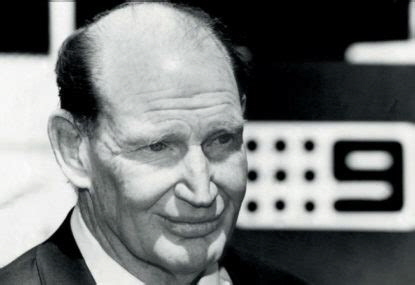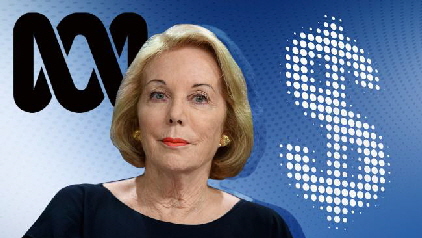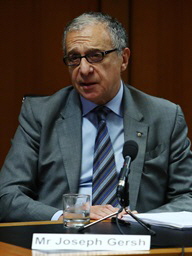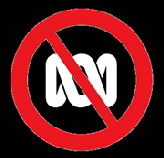|
“It’s Your ABC”
“This service, the ABC, now belongs to you. We are your trustees. It is a service that is not run for profit, but purely in the interests of every section of the community.”
-words used to introduce the ABC to the nation at its founding in 1932.
Ownership has a specific legal meaning. It means the right to use, control, benefit and exclude others from any tangible or intangible object. It is difficult to see how that concept aligns with the term ‘our ABC’.
In what manner can we, the pubic, manifest our ownership?
As simply citizens, we hardly have a right to control how it is staffed, nor change the programming schedule, nor request different types of shows if per chance we could raise enough signatures on a petition.
What delight we may experience from watching a show that did not happen to offend our beliefs and values is quickly assuaged by remembering the annual billion dollar plus funding we have to pay. Ironically, we would enjoy more ownership in buying shares in a commercial station such as Channel 9. The initial purchase might be expensive, but as the years passed, annual dividends instead of annual funding would be the norm. Control would be quite limited but still existent. At shareholder AGMs one could vote  for preferred management teams for the following year. for preferred management teams for the following year.
In a famous/ infamous incident of Australian television, in 1992 a new show hosted by then radio shock jock Doug Mulray, Australia’s Naughtiest Home Videos, which brought to the screen a multitude of instances of animals, and then humans engaged in coitus, was, after 30 minutes, unceremoniously taken off air when the station received the command, barked by chairman Kerry Packer, “get this s..t off the air!”
In comparison it is hard to imagine ABC producers going to the trouble of making a show catering to minority tastes and then cutting it mid broadcast because they were made aware it might affect ratings.
The staff collective who do use, control, benefit by propagating their specific political opinions while excluding others from doing the same, are quite happy to declare they have no special proprietary rights and humbly assert they are merely servants to the Australian public; a small price to pay to be able to continue treating the largest media asset in Australia as their own.
Public television is taxpayer funded but you pay for ads on commercial media so what’s the difference?
“Included in the cost of almost everything you buy is the cost of advertising. So we are all forced to pay far more for commercial TV and radio than we do for the ABC.” FABC Vic Info sheet: GS 1st Aug. 2007
The day Vincent realised what a truly nice guy he was.
Accountant Vince got on OK with all the other staff in the office but he always got the feeling he wasn’t that well liked. When the hat was being passed around for someone’s leaving present or some staff member was collecting for a reputable charity, Vince always made a point of not donating more than others.
Never being that popular with the ladies and unmarried at age 45 did not bother him because he was still able to regularly arrange female companionship. As a matter of fact, quite regularly, at 8pm every Thursday night at which time he visited the home of a professional lady whose working name was Miss Gilda Goodthighs.
For five years every payday he had been enjoying the lady’s intimate company and thinking it was a $400 weekl y expense very well spent. y expense very well spent.
By accident Vince happened to find out one evening something Gilda had tried to keep secret, that she actually is the proverbial working woman with the heart of gold. For the past ten years she had been donating 25% of her takings to the local orphanage.
Driving home that evening Vince couldn’t get out of his head why someone would donate such a large percentage of their income to charity. And what was worse, why keep it a secret? If she worked at some other profession in an office she could let others know and thus be very well liked and respected.
And then, like a flash of sheet lightening, it occurred to him.
If Gilda donates 25% of her income to the orphanage, and he, Vince, gives her $400 per week, then every week for the last five years he has been giving the orphanage one quarter of that $400, and extrapolating it out over the year, means he has been making annual payments of $5,000.
Vince is beside himself with glee. What an upstanding, benevolent, chap he has been all along. And they dare to think the less of him at work because of his thrifty attitude to helping others. Wait till he informs them all of his recently realised generosity. Of course, that might be difficult due to the nature of how his generosity is manifested. Perhaps, he contemplates, he could ask Gilda to arrange for the annual donations receipt from the orphanage to be split up into separate receipts proportional to how much he believes he donates?
The economic fallacy of financing the next transaction.
When the minister pays the tradie $1,000 for all the work he has done repairing the gutters and shingles on the church roof, it does not bother him too much that the tradie immediately heads off to the local bordello to spend his recently acquired earnings. When one of his parishioners happens to find out and complains that the money he placed into the collection plate last Sunday has gone towards alcohol and pleasures of the flesh, the minister pulls him aside and gives a quick lecture in economics, explaining that church funds went only on repairs, and after that, the money was no longer the church’s.
The price we pay for any product or service in the free market (obviously different with a government monopoly) is always that of the best product value offered. We go with the best deal immaterial of whether the seller made a 600% mark up or whether he is barely scraping even after paying for advertising. Sellers cannot dictate prices; they have no power to. If the seller arbitrarily puts up the price to cover advertising expenses and finds he is still able to sell his product/service, it simply means that previously he had it below the market price. Suppose he did not actually put up the price of his product but instead depended on increased sales to cover the advertising costs, thus still making an overall profit albeit less per unit sold than previously. In such a situation a post advertising buyer would be paying the same price as a pre advertising buyer. But how could that be so if one was paying for advertising and the other wasn’t?
State ownership of ABC guarantees regional content and reach
When first reading this, one might be tempted to believe that regional areas are not all catered to by commercial media and thus market failure leaves it to the government to provide service, such as with ABC News 24. However as per the ABC Annual Report for 2015-16, the reported weekly reach for Australian metropolitan area for the above channel was 14.9% while for regional it was 18.9%. So even though reach increased for rural areas, the simple fact is that over 80% of listeners still chose elsewhere. Bearing in mind less than 11% of Australians live in rural areas, that two percent of our population might have to go to the trouble of changing stations, seems a minor justification for maintaining the taxpayer funded regional services.
What also must be considered is that regional Australians increasingly enjoy, via the internet, the same media access as Australians in metropolitan areas. Also, as digital technology continues to reduce the cost of media production and distribution, there is greater scope for individual regional communities to generate content independently. Accordingly, the most important determinant of media reach is internet access and speed. Taxpayers therefor need no longer subsidise individual broadcasters to compensate for the ‘tyranny of distance’ affecting regional Australia.
State ownership of the ABC is essential to ‘diversity’ and ‘quality’.
Quality by what standard?
When you are judging quality in automobiles there are objective criteria one can go buy: reliability, running costs, number of airbags, power, luggage space, etc., but when it comes to entertainment, information and culture, it is hard to list benchmarks of quality that would be agreed by all. That we all might agree on what constitutes a channel changing, bad show, there are no standout attributes that objectively identify would be described by most as a “quality” broadcast, apart of course from the most obvious benchmark, that of ratings.
Diversity, for what reason?
Apart from diversity of political opinion, there can be no doubt that Pravda does have a lot of diversity in its programming. But, as compared to quality, why is diversity per se, a good?
Australians would have a predilection to watch an Australian show because they can easily relate to the characters and show’s settings, but why should we be that interested in watching a TV soap opera set in Paraguay?
It is not that commercial stations don’t engage in some diverse programming, as this has shown to be what viewers want, but it is ridiculous to declare that we are all in need of the government channel declaring out of the air some finite amount of different types of broadcasting that Australians definitely need.
Pravda Defenders
Ita Buttrose
Funded by all of us
“The ABC, funded by all of us, regardless of our creed – race, age, political beliefs – is us. It’s the way we build cross-cultural understanding, the way we help each other in times of need. It’s who we are collectively. Why would anyone want to diminish that and make us less than who we are?”
- So unlike subscription TV which is voluntarily funded, the ABC’s funding is mandatory, but at least they do not discriminate, but take our money without our consent irrespective of religion, race, age, or political beliefs.
- A charity voluntarily funded by many different people might well be something reputable and a vehicle to build cross cultural understanding amongst its members. However a taxpayer funded government media service, whom many view either as unnecessary in an already overcrowded field, or offensive in the causes they promote which denigrate the viewers beliefs or values, is definitely not something to create community harmony and cross cultural understanding.
Pravda leads to greater press freedom
“…countries that have popular, well-funded public sector media encounter less extremism and corruption and have greater press freedom.” – Ita Buttrose, then Chairwoman of the ABC.1
-
This is an extraordinary statement to make. Is Ms Buttrose aware that while practically every of the approximate 195 countries of the world has media organisations, less than half of those countries have regular free and fair elections. Thus, for the remainder it would be safe to say that the only media is state media, big brother media, or what Ita calls, public sector media, and because of that, Ms Buttrose alleges those countries experience less corruption and greater press freedom?
-
Corruption is traditionally associated with the surreptitious actions of public servants selling grants, licences, permissions or other favours. One wonders how the greater existence of government media can somehow decrease the existence of government enabled corruption.
-
It is true that in those countries extremism, as defined by the existence of minority points of view challenging the status quo, would hardly exist, however whether in autocracies or democracies, why is the existence of extremist beliefs or political parties a problem? For us, is it not just a by-product of living in a tolerant society that practices free speech and democracy?
Passionate about public broadcasting
“The strength of the ABC and its relationship with the nation comes from the very people who work for us. They are passionate about public broadcasting and are prepared to work for less than they would be paid by commercial media to deliver it.”
- Of course they are passionate about what they do. Rather than volunteer for GetUp and also regularly donate to their causes, they have landed a job where they have a much greater influence in promoting their ‘progressive’ political causes, and not only that, but they get paid for it as well.
The ABC is essential in generating and preserving Australia’s democratic culture. An independent, well-funded national broadcaster allows Australians, wherever they live, to connect. It is how we share our identity, how we tell our stories, how we listen to each other, how we ask for help and how we give it.
- Do the degree that that makes any sense at all, couldn’t the commercial stations make a similar claim?
Joseph Gersh
Joseph Gersh is executive chairman of Gersh Investment Partners, an ABC board member and a former deputy chairman of the Australia Council for the Arts.
Most trusted news source
“It may irritate the critics, but the ABC remains Australia’s most trusted source of news and current affairs.”
Attracts controversy
“Unsurprisingly, the ABC’s political coverage attracts the most controversy. But how can it be consistent with liberal values to call for the ABC to be defunded every time a controversial story is aired?”
- This depends on which understanding of ‘controversy’ Mr Gersh is referring to. Are we talking about the controversy created by the ABC discovering an unquestionable abuse of process committed by the government Finance minister, or the Prime Minister being caught out in a lie when addressing parliament? Or is the controversy caused by the ABC stacking the guest speakers 4 to 2 in a debate on some political issue, or by ABC interviewers developing the habit of always interrupting members of one party but not that of their opponents?
- One would be very interested to see a citation offered by Mr Gersh of calls of the ABC to be shut down after a controversy from the first category.
Rural and regional areas depending on the ABC
“Who but the ABC can we rely on for …broadcasting, [such as] … rural and regional Australia, Australian drama, comedy, children’s shows, women’s sport, music, Indigenous issues and the arts.”
- Mr Gersh unintentionally makes a revealing admission. Obviously the commercial stations are going to broadcast the above nine types of shows if they would draw viewers, that is, if there would be a dollar in it. However, what he appears to be implying is that if those shows didn’t attract eyeballs, or to the degree that he thought the shows deserve, then the ABC should broadcast anyway.
- This really strikes at the heart of the difference between private and public broadcasting: the former gives the public what they want, while the latter gives the public what they, the broadcasters, think the public should be watching.
#1 Lecture by Ita Buttrose given to the The Ramsay Centre, 23 Nov 2020, as reported by Rob Harris, same date, S.M.H.
|

